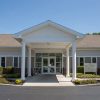Is there an aging family member or friend in your life who needs help? With an increasing number of seniors living independently, it’s important for every one of us to know our options when it comes to senior care. In this article, we’ll help you navigate your way around the comprehensive landscape of senior care in the modern age.
Understanding the Need for Senior Care
Senior care has rapidly evolved over the last few years, thanks to both societal shifts and technological advancements. It is no secret that people are living longer, healthier lives. The World Health Organization reports that the average global life expectancy increased by 5.5 years between 2000 and 2016, the most significant increase since the 1960s. As a consequence, the elderly population worldwide is expanding, and so is the requirement for senior care.
Some seniors might need help with daily tasks such as eating, dressing, or bathing, while others may require specialized care for illnesses like Alzheimer’s or Parkinson’s. With diversified demands, the services offered in senior care have also widened, from in-home care and skilled nursing to assisted living and hospice care. Indeed, senior care has become an integral part of our society, ensuring the elderly live with dignity and comfort.
In many cases, specialized services and equipment are needed within the senior care industry. This is where the role of Lifeplan Community Supply Chain Solutions comes into play. They offer solutions for the complex needs associated with senior care, providing resources, products, and services tailored toward ensuring the best possible quality of life for seniors.
Role of Technology in Senior Age Care
Technology has influenced various facets of our lives, and senior-age care is no exception. From simple wearable devices tracking heart rate and sleep patterns to complex systems deploying artificial intelligence to predict and prevent health problems, technology holds colossal potential in revolutionizing senior care. These advancements can encourage seniors’ autonomy, keep them safe, make caregiving tasks more manageable, and enhance communication between seniors, caregivers, and health practitioners.
Additionally, advancements in telemedicine have brought about a transformation in outpatient care. Seniors can now have video appointments or call a caretaker for assistance without leaving the comfort of their homes. This not only saves time for both patients and caregivers but also reduces the risk of seniors contracting illnesses.
Despite the many benefits of technological advancements, it’s important to consider the ethical implications and privacy concerns related to using such technologies. Taking precautions to keep seniors’ data secure, ensuring that technologies are used with consent, and making sure that the usage of technology does not reduce human contact are all essential considerations as technology takes a more prominent role in senior care.
The Holistic Approach: Alternative Medicine in Senior Care

As society continues to embrace wellness alongside treatment, interest is growing in holistic and alternative medicine. This approach seeks to understand and address the person’s entire body, including their physical, emotional, and even spiritual health. For seniors with chronic diseases and long-term health conditions, this approach can bring a lot of relief.
Many seniors today are consulting Alternative Medicine Practitioners for a second opinion or treatment methods, including massage, acupuncture, and yoga. These practices are gaining popularity for their role in mental health, relieving issues like depression and anxiety that are quite common among seniors. It is even suggested that, to some extent, alternative medicine can help manage or alleviate the symptoms of serious diseases like cancer, heart disease, or Alzheimer’s.
While some in the traditional field of medicine may still be skeptical, countless easily accessible real-world accounts testify to the potential benefits of alternative treatments. Recent research is helping to validate these claims, and we are seeing with more frequency the integration of traditional and alternative treatments in the care of seniors.
Overall, the landscape of senior care is changing, driven by societal shifts, technological advancements, growing acceptance of alternative medicine, and the need for financially manageable care. By understanding these dynamics and aligning our actions accordingly, we can ensure that our seniors live with respect, dignity, and comfort.







